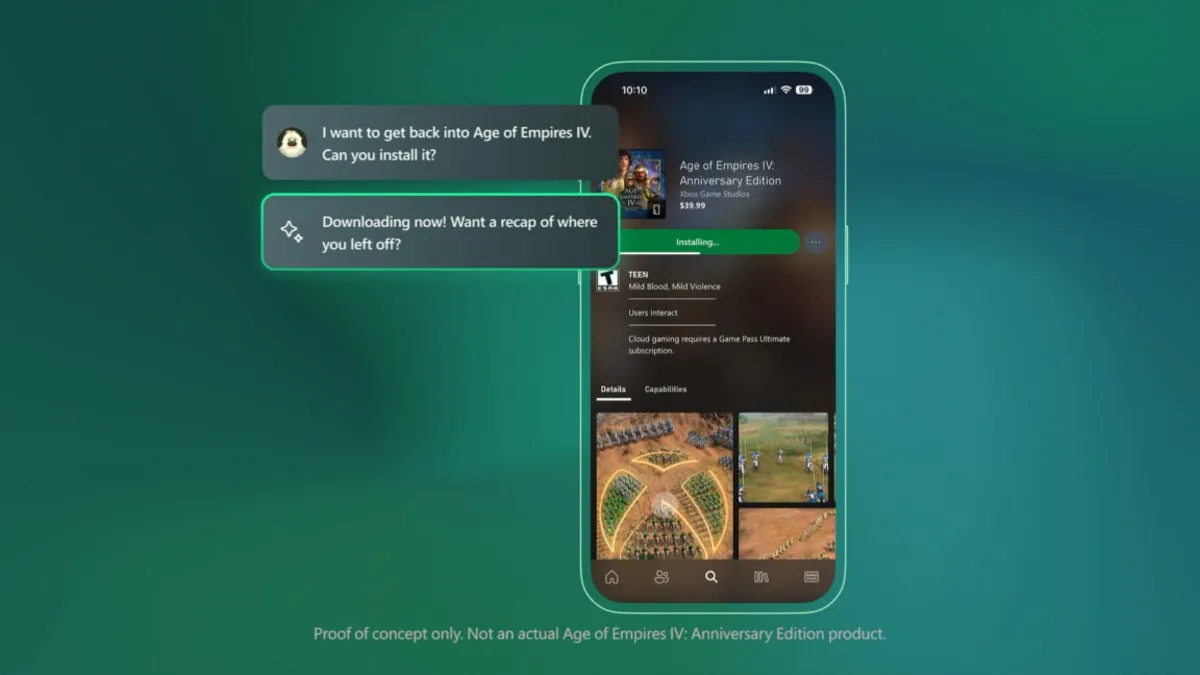
In a groundbreaking announcement, Microsoft has unveiled its plans to roll out the Copilot for Gaming, a new mobile app designed to serve as an ultimate gaming sidekick. This innovative feature will be available for preview to Xbox Insiders starting in April. The concept was initially teased last year, showcasing how real-time conversations with your AI companion could enhance the gaming experience by providing personalized guidance and companionship during solo gameplay sessions, particularly in Minecraft.
However, the initial version of Microsoft's gaming copilot appears to fall short of the high expectations set by last year's demonstrations. Users have noted that it offers basic automation of functions that gamers can easily manage without the assistance of AI. Instead of feeling like a revolutionary advancement in conversational AI, the new app resembles a more advanced version of Apple's Siri, leading many to question its true value in enhancing the gaming experience.
During a live demo of the Copilot for Gaming app, reactions quickly shifted from excitement to disappointment. For instance, when a player asked, "I want to get back into Age of Empires... Can you install it?" the convenience of conversational installation prompts was noted, but it didn't seem like a groundbreaking feature. Gamers may find it easier to click a few buttons to start a game install rather than relying on AI for this task.
Similarly, the demo concluded with Copilot reminding players that friends were online and suggesting they join Sea of Thieves via cloud gaming. Again, this is a task any Xbox player could accomplish independently, raising doubts about the necessity of AI in these scenarios. While Microsoft claims that AI-driven recommendations will be tailored to individual players, many gamers can easily determine their next gaming adventure without AI intervention.
While playing Age of Empires, the demo player sought advice on defeating a beast, prompting Copilot to provide a small text snippet with relevant tips. This feature could be beneficial, saving players time compared to searching for information online. However, its effectiveness depends on Copilot accurately understanding both the player's question and the context of the answers provided. Misinterpretations could lead to irrelevant or incorrect information, detracting from the overall experience.
Another instance involved a player asking Copilot for details about the historical Frankish siege of Tyre, simulating a conversation with a knowledgeable companion. While this feature may seem engaging, it is something players could easily look up themselves, potentially sacrificing accuracy for the sake of convenience.
One of the most intriguing aspects of the Copilot for Gaming demo was its ability to recap a player's progress during game installation. The AI voice provided specific details about the player's previous battle, creating a useful context for those returning to a game after a long break. This feature demonstrates the potential of AI to offer personalized insights based on players' in-game activities.
Despite these highlights, the current capabilities of the Copilot for Gaming largely revolve around minor conveniences, saving players from pausing their games for simple tasks that could take just moments to complete. These features, while helpful, do not align with the ambitious vision of a fully integrated conversational gaming partner that Microsoft initially presented ten months ago.
Looking towards the future, there are glimpses of what a fully realized Copilot could achieve. In a forward-looking segment of the demo, potential AI integrations for Overwatch were showcased, including a feature where Copilot suggested hero selections that complemented the player's team and gameplay history. This kind of intelligent interaction could transform the gaming experience, making conversations with AI during gameplay feel natural and engaging.
As it stands, the current iteration of Copilot for Gaming may not offer significant advantages over traditional gaming experiences. However, if Microsoft can enhance its capabilities to facilitate seamless, adaptive communication during gameplay, the future of AI in gaming could be bright. For now, gamers may find it challenging to see the value in a version that primarily automates basic functions without providing a substantial upgrade to the gaming experience.